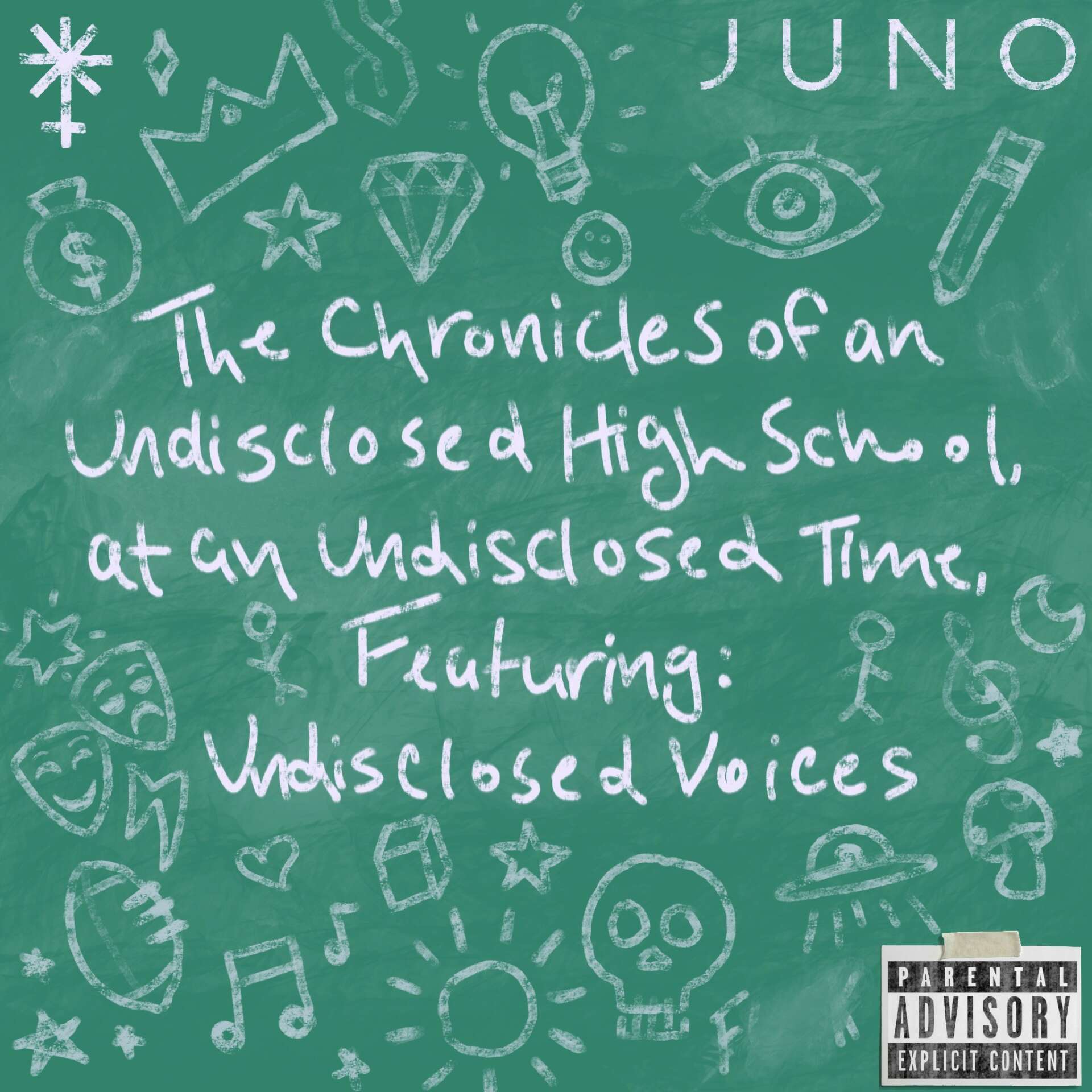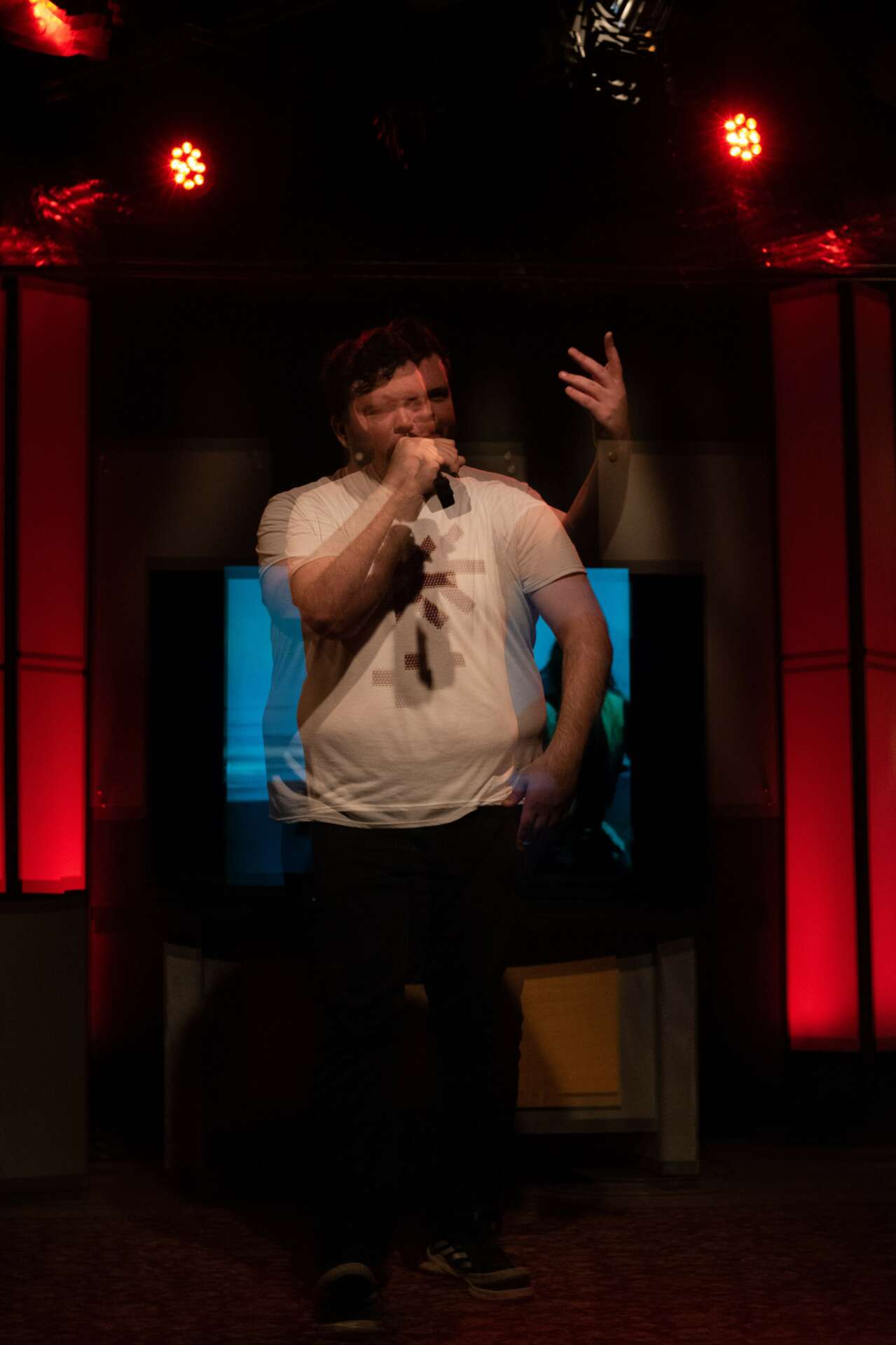We recently connected with Robert Leslie Meek and have shared our conversation below.
Robert Leslie, looking forward to hearing all of your stories today. Learning the craft is often a unique journey from every creative – we’d love to hear about your journey and if knowing what you know now, you would have done anything differently to speed up the learning process.
To say I’ve always known I would be working with music and audio would be a lie. I’ve always been drawn to it for sure. I’ve long been obsessed with early foley artists and grew up listening to film scores, but pursuing it professionally was something that only happened in the last 5 or so years.
Flash back a bit.
I got involved in orchestra and theatre around the same time and had those as my major extracurriculars from around 6th grade all the way through high school. I ended up going to college for acting, then found directing really spoke to me between my junior and senior year. The theatre where I was doing my early directing typically left me wanting when it came to the sound design for productions so I decided to take that on as well, because why not add MORE work for a first time director? From there I continued to act, direct, and do sound design just about anywhere I could. People tend to think of others in more singular terms though and put them in a box, especially young artists, so pretty quickly as more sound design gigs came in, less directing and acting opportunities were extended to me. So here I am now around 4 years out of earning my acting degree, working regularly as a sound designer. I wasn’t too bothered because at least the work was starting to feel consistent and I liked what I was doing, and then COVID comes around and SHAKES IT ALL UP!
Just about overnight the live performance world was just about non-existent. So we adapt.
I wasn’t about to sit and wait for theatre companies to try and figure out what they were going to do, so I got to work creating for myself. Since then I’ve earned over 250,000 streams on Spotify, designed and created original music for several critically acclaimed theatrical productions, earned a Houston Press Theatre Award nomination, and collaborated with talented artists and companies across the world.
I say all this to give context, apart from my years in orchestra I have no formal training. I’m completely self-taught.
I know what I like and try to not worry about any artistic “rules” that can get between me and the outcome I want.
In the age we live in now there are so many incredible resources available to us to learn what we want to learn, and create what we want to create.
One of the most important skills anyone can focus on is their curiosity. If there’s something you’ve always wanted to do or know more about, CHASE IT! Embrace that chase! The amount of times I’ve fallen down a rabbit hole of research because I looked up something I didn’t know, which led to so many more questions and answers, has been beautiful. Instead of getting frustrated when learning new skills, get excited that you’ve found something else to expand on!
The biggest obstacle in my learning journey has been and will always be myself. It’s so easy to fall into the pit of comparison and self-doubt. The key is to stay focused on your own journey. If you’re only focused on the destination you’ll always wake up upset that you aren’t there yet, but if you focus on the steps you’ve taken, and how far you’ve come, it makes it much easier to keep everything in perspective.
If I could have learned that earlier things might be different, but I love where I’m at, and I’m so excited to keep growing.



As always, we appreciate you sharing your insights and we’ve got a few more questions for you, but before we get to all of that can you take a minute to introduce yourself and give our readers some of your background and context?
At the end of the day I say I’m an artist. I work across many different disciplines: I’m an Actor, Director, Sound Designer, Vocal Performer and Music Producer – a story teller. I’ve never really been one to focus on just one thing, and almost always have multiple projects happening at any given point. I love adding skills to my tool belt. In pursuing so many different creative outlets I’ve become a well rounded artist. A good friend of mine described people like me as Guerrilla Artists, in that you can drop us anywhere and we can make it happen.
Recently my main focus has been sound design and music production.
I’ve long been inspired by a quote from “Hamlet” where Hamlet is reminding the players (performers) what their job is, he says:
“…the purpose of playing, whose end, both at the first and
now, was and is to hold, as ’twere, the mirror up to
nature, to show virtue her own feature, scorn her
own image, and the very age and body of the time
his form and pressure.”
I’ve long tried to internalize this as an artist and found that I regularly felt like the auditory mirror had been held to the past for too long. I was tired of going to see plays where I could tell the only thought put into the sound was what was already in ink in the script. There was very little innovation. From play to play I would hear the same effects, and the same style of music used in just about every show. Ugh, I hated it! So as I continued to build and flesh out my toolkit I took special care to focus on the areas I felt the theatre community was lacking in. At the same time I was really expanding as a music producer, taking online courses and watching as many videos I could. It was around then that I really solidified my approach as a sound designer.
I like to look at the show as a music producer, and I approach my music like a theatrical sound designer, meaning I’m always looking at the musicality in any story.
Now this isn’t to say that I think that every show should be underscored at all times, or that every play should have a bangin’ hip-hop soundtrack (though it could), but I do think that there’s more room for a sonic soundscape as opposed to just sound cues. I think a sound designer’s job is to help add highlights to the story. Sometimes that manifests as a huge cue that everyone is focused on, sometimes it means just having a subtle city atmosphere under a scene that takes place on a balcony. The world is full of noise and sound, and to try and eliminate that to only hyper specific moments is doing a disservice to the story of the play, because it’s no longer as truthful a reflection of reality.
I’m very proud of the work I’ve accomplished in the last few years.
By offering modern sound design and creating original music for the shows I work on I’ve been able to carve out a place for myself in the city and community. I’ve had two theaters trust me with their entire season because they know I provide something different from the other designers in this city. I’m always trying to one-up myself from project to project, never content to stay comfortable, I find that I create my best work in the space where my back starts to meet the wall, I love that pressure.




In your view, what can society to do to best support artists, creatives and a thriving creative ecosystem?
In general I wish more people understood that art exists in just about every form imaginable, certainly not just within the walls of a museum, theatre, or concert hall. Each and every person on this planet has an artist in their life, I guarantee it. If people could really understand that I think the world would place more weight into the importance of pursuing art. The best way you can support art happening is to be open to the art around you, and then spread the word. If you like the art your friend is making, buy something from them and post about it. Share their posts with regularity, champion them the same way you do for someone you’ve never met who only sees you as an Instagram follower.
I promise you, if you start paying attention to artists around you, you’ll find some of your all time favorites.
What’s a lesson you had to unlearn and what’s the backstory?
There is no, “right way”.
Everyone is on their own specific path, what works well for one could be detrimental to another. If you’re regularly comparing your journey to your neighbors, you’re going to have a bad time simply because their path will never be exactly the same as yours. You cannot compare two things that are at their very foundation different.
Unlearning this is one of the most freeing things an artist can do. Create how YOU want to create. If you like the outcome, who cares if someone 100 years ago said it was the wrong way to do it? So much of the education we receive through our lives is tainted by past thoughts and ideals. Modern day music theory is primarily based on the styles of 18th century European musicians, colonialism is rampant through education in all aspects. So I’d actively challenge anyone to unlearn something, and be open to differing ideals.
As an artist I’ve found collaboration to truly be the spice of life, and being open to ideas coming from anywhere is a beautiful thing.
Contact Info:
- Website: https://www.junomusichtx.com
- Instagram: https://www.instagram.com/junomusichtx
- Facebook: https://www.facebook.com/JUNOmusicHTX
- Youtube: https://www.youtube.com/channel/UCN1xLXdvsfD4sW9PiTcKdYg
- Other: Patreon: www.patreon.com/junomuischtx Spotify: https://open.spotify.com/artist/5nRn9z7xVlDPhQ9BX2bE24?si=kUA2DxaTRQWgpv6c8j7UEA&dl_branch=1
Image Credits
Tasha Gorel (@tashagorel) Hannah Warren (@_hcreates_)


